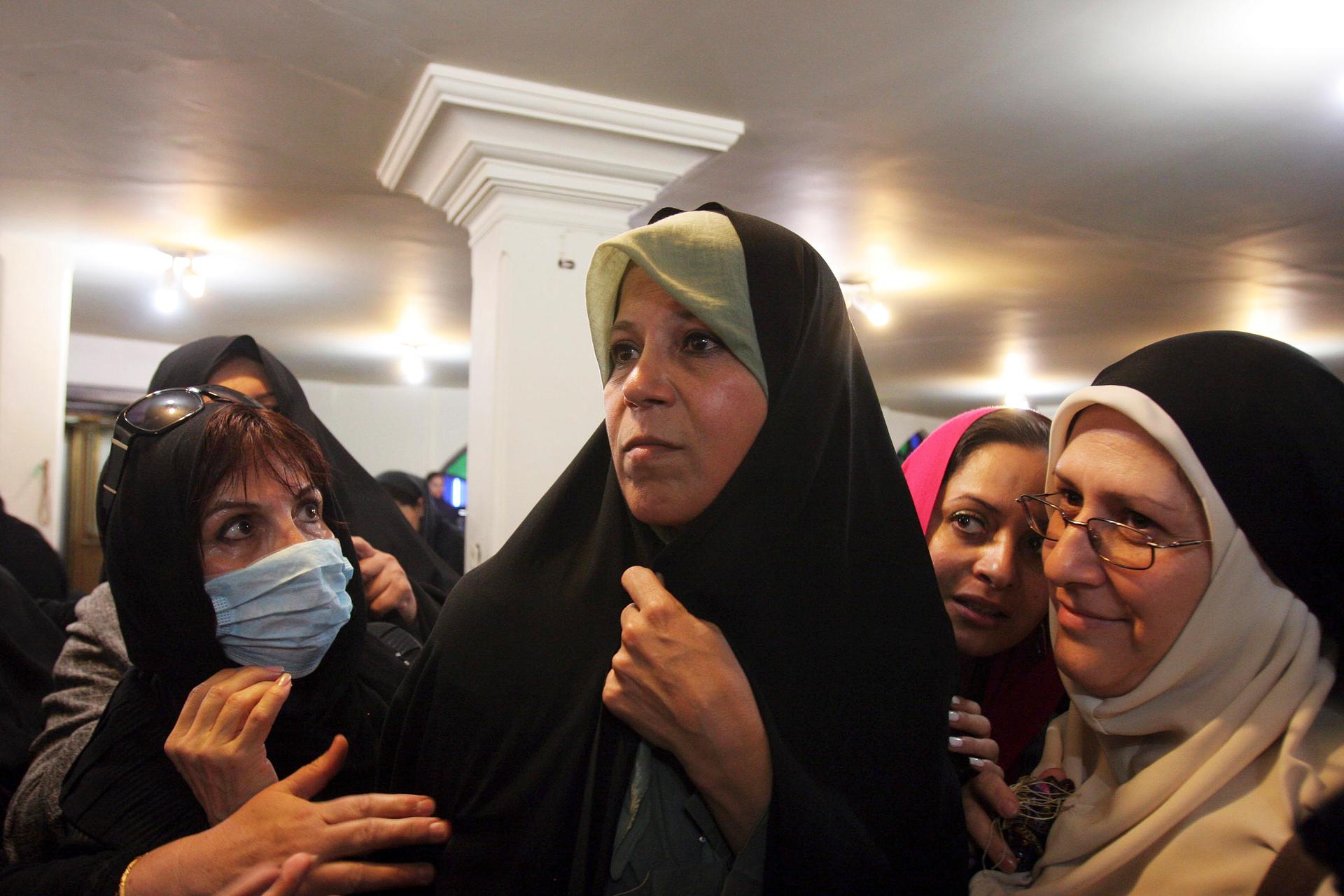Faezeh Rafsanjani, the daughter of former Iranian president Akbar Hashemi Rafsanjani, is pictured at a protest at the Ghoba mosque in northern Tehran in 2009.
The recent death of former Iranian President Akbar Hashemi Rafsanjani leaves the outspoken women in the reformer's family in a sort of political limbo.
It's unclear how much clout his once-powerful daughter and wife will retain in an increasingly conservative Iran.
"We have to wait and see how things are going to unfold," says Nazila Fathi, a former correspondent for The New York Times.
The ex-president's younger daughter, Faezah Hashemi, served in Iran's parliament. When she won the post in 1996, Iran's conservative mullahs — religious leaders — wouldn't acknowledge that she'd received more votes than any other candidate.
"It was too embarrassing for the regime to admit that a young woman had won more votes than influential clerics in the country, so her name appeared second," Fathi says. "She refused to wear her headscarf the way the regime women wore them, or the coats that the regime required women to wear. That set her apart on the surface. But in parliament, she was always very vocal. She wasn't afraid to challenge clerics."
The family's patriarch, the relatively moderate Rafsanjani, served two terms as Iran's president, from 1989 to 1997. Although he retained some influence after stepping down, he was largely silenced by more conservative voices in recent years.
His daughter Faezah Hashemi has been out of parliament for more than a decade, but her legacy remains. Iran's women can thank her for making it possible for them to exercise in public. She had a women's bike path built in Tehran and increased access to sports facilities.
"It was important for her that women get out," Fathi says. "Biking was one of those sports that had been banned right after the revolution. Somehow the clerics had thought if women were pedaling around the city they were exposing themselves too much."
Faezah Hashemi spent six months in Iran's infamous Evin prison after protesting the 2009 presidential election results. She later described it as "the best time of my life" that "opened another world" to her.
Her cellmates included women activists of the Baha'i faith, a religion that had been banned after the 1979 revolution. After she was released, she sparked outrage when she visited the Baha'i families of friends she made in prison.
Likewise, Effat Marashi — the late Rafsanjani's wife, and the mother of his five children — pushed the boundaries limiting Iranian women.
In the days following the revolution, she was reportedly a target of the extremist group Forghan, which is thought to have murdered more than a dozen political and religious figures shortly after clerics took power. Rafsanjani is credited with saving her from the group's attempt to assassinate her.
Iranians were not accustomed to hearing from the wives of their leaders. But during the protests that engulfed Iran after the 2009 vote, Effat Marashi was widely quoted as saying, "If people see that [the government] has cheated, they should protest on the streets."
Despite the allegations of corruption and abuse of power that cloud the Rafsanjani legacy, Fathi, the former correspondent in Tehran, argues his youngest daughter Faezah Hashemi could become vocal again.
"She was a person who believed in change and wanted to see change," Fathi says. "She did have the popularity to move forward with it."
Every day, reporters and producers at The World are hard at work bringing you human-centered news from across the globe. But we can’t do it without you. We need your support to ensure we can continue this work for another year.
Make a gift today, and you’ll help us unlock a matching gift of $67,000!
